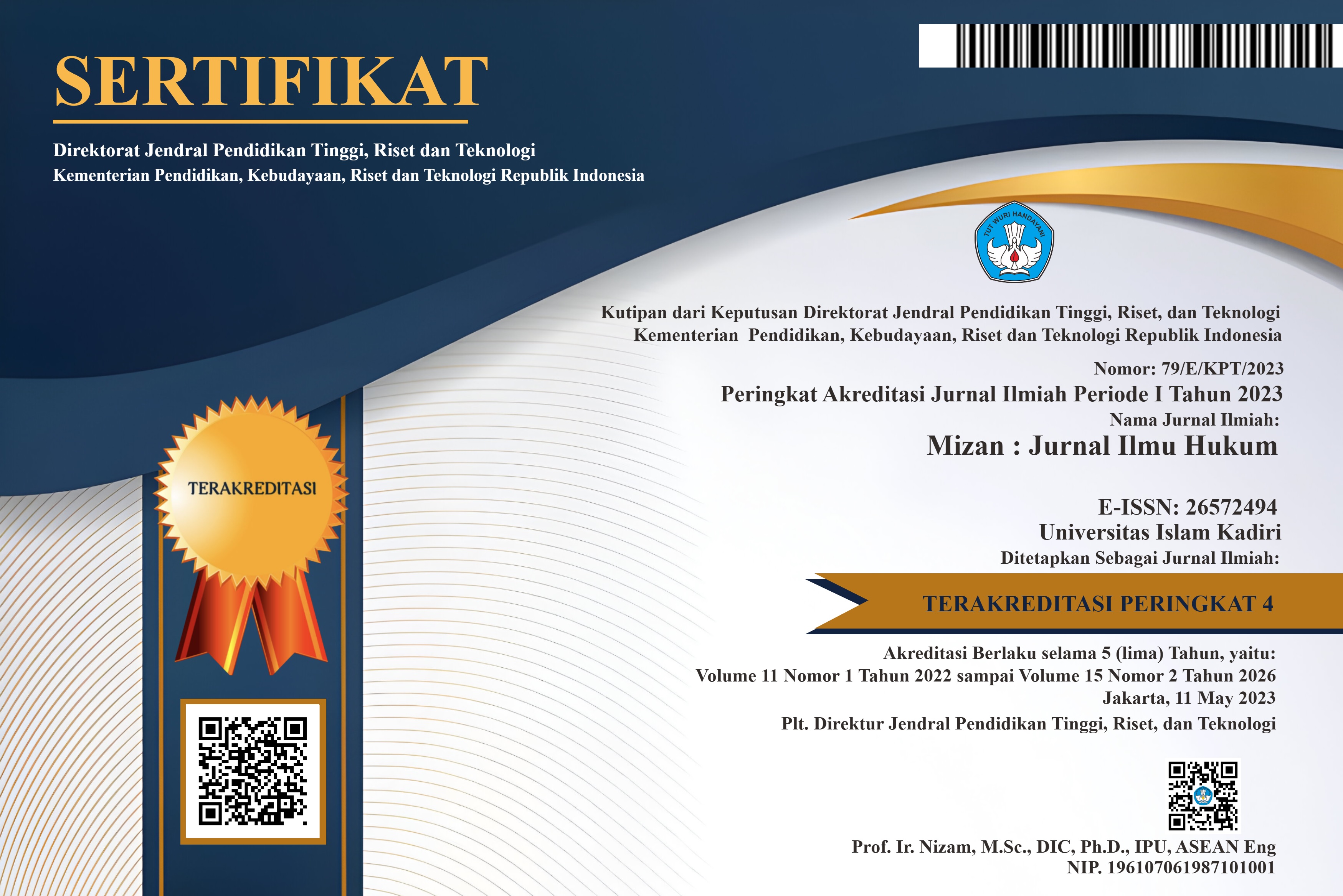IMPLEMENTASI PENYELESAIAN PERKAWINAN POLIGAMI YANG TIDAK TERCATAT PADA KANTOR URUSAN AGAMA (Studi Kasus Putusan Nomor 1759/Pdt.G/2015/PA.Ngj di Pengadilan Agama Nganjuk)
Abstract
Polygamy is multiple marriages or a husband who can has more than a wive or at the same time being married to more than one wife. There isn't any prohibition of being polygamy in the pom mom law and Nam's law as far as the rules and procedures and legal rules applied correctly, and with reasons that can be used as arguments for practicing polygamy, one of which is the court order.
The fact is that our society does this polygamous marriage based on Religious law only so that it is not recorded at the Office of Religious Affairs and made the polygamous marriages invalid. This study aims to examine and analyze the pollessin of polygamous marriages that are not recorded at the Office of Religious Affair along with the effect of it. The author uses the research method YURIDIS EMPIRIS. Based on the research, there are polygamous marriages without procedure from the Religious Courts so that they are not recorded in the Office of Religious Affairs so that they are not recognized by the state, the consequence of which is that polygamous marriages are considered invalid and have no legal force. Polygamy marriage certificates that are not registered with the Office of Religious Affairs have legal accounts for wives and children resulting from polygamous marriages, both regarding data records, assets and lineage of children. Therefore, a solution is needed to resolve polygamous marriages that are not registered with the Office of Religious Affairs, namely by applying for the ratification (itsbat) of polygamous marriages so that the marriage can be registered and legal according to the Law of Religion and State Law. Furthermore, to fill the legal vacuum regarding the occurrence of unrecorded polygamous marriage a new rule is needed in line with and without overriding existing rules.
References
Harahap, M. Yahya, 2010, Hukum Acara Perdata (Tentang Gugatan, Persidangan, Penyitaan, Pembuktian, Dan Putusan Pengadilan, Jakarta: Sinar Grafika
Jamaluddin dan Nanda Amalia, 2016, Buku Ajar Hukum Perkawinan, Lhokseumawe: Unimal Press
Rasyid, Chatib dan Syaifudin, 2009, Hukum Acara PerdataDalam Teori dan Praktik Pada Peradilan Agama, Yogyakarta: UII Press
Ritonga, Iskandar, 2003, Hak-Hak Wanita Dalam Putusan Pengadilan Agama, Jakarta: Departemen Agama Republik Indonesia
Soekanto, Soerjono dan Mamudji, Sri, 1995, Penelitian Hukum Normatif Suatu Tinjauan Singkat, Jakarta: PT Raja Grafindo
Soekanto, Soerjono dan Mamudji, Sri, 2001, Penelitian Hukum Normatif (Suatu Tinjauan Singkat), Jakarta: Rajawali Pers
Syarifah, Masykurotus, 2018, Implikasi Yuridis Poligami Bawah Tangan Perspektif UU No. 1 Tahun 1974 Tentang Perkawinan, Jurnal Yustitia, Vol.19 N0.1, Sekolah Tinggi Agama Islam (STAI)
Undang-Undang Nomor 1 Tahun 1974 Tentang Perkawinan, 2006, Surabaya: Kesindo Utama
Putusan Pengadilan Agama Nganjuk Nomor 1759/Pdt.G/2015/PA.Ngj
https://www.gramedia.com/literasi/teori-kepastian-hukum/









